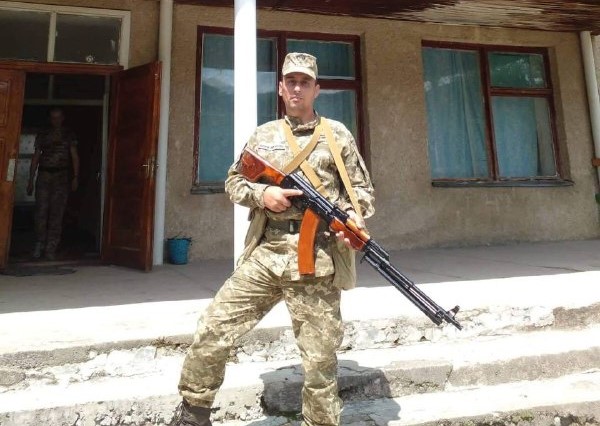The Roma minority in Ukraine is taking part in defending their country against Russia’s aggression and should also become part of the post-war reconstruction, according to new survey published by the Roma Foundation for Europe.
One in four of the respondents in the survey reported that their family members were currently serving in the armed forces, the territorial defence or in volunteer formations. The figure is taken from a sample of interviews during December 2022 – April 2023 with internally displaced Roma in Ukraine.
As previously reported, the majority of those surveyed come from the regions most affected by the war, where hostilities were still taking place: Kharkiv, Donetsk and Kherson.
While Roma soldiers are fighting on all fronts against Russia, their displaced families are facing discrimination and prejudices. In one region which hosts half of all internally displaced Roma, only one-quarter of them have had access to IDP registration compared to nine out of ten in the rest of the country, denying them access to urgent aid.
"We see that Roma are defending Ukraine like other Ukrainian citizens,” commented MEP Michael Gahler (EPP), a long-serving German MEP who is rapporteur on Ukraine. “As European Union and its Parliament we should pay special attention to minorities during reconstruction efforts in Ukraine. We cannot allow Roma and others to be prevented from receiving the support they deserve."
“The contributions by Roma to Ukraine’s defence are particularly notable given traditions in Roma culture against bearing arms,” explained Zeljko Jovanovic, President, Roma Foundation for Europe. “The level of participation by Roma is higher in relative terms considering the proportion of Roma men who are exempt from military service because they have three or more children under the age of 18.”
“The report aims to ensure that the valuable contributions of Roma communities are recognised and acknowledged in post-war reconstruction, and that the exclusion and neglect of Roma is addressed as part of efforts to build an inclusive and equitable society for all citizens of Ukraine,” Jovanovic explained.
Even before the Russian invasion, Roma grappled with the persistent challenges of discrimination, low incomes and precarious employment. The war has further exacerbated these issues. Roma mostly live in informal housing without documents showing ownership and cannot benefit from compensation and financial assistance for rebuilding their homes.
Roma were persecuted by Nazi-Germany during WWII. “Improving the situation of Roma might be one of the strongest rebuttals to Vladimir Putin’s narrative about ‘denazification’ as a reason for the war. Fair treatment of Roma would help refute Russian claims that Ukraine’s ‘Nazi’ government disregards minority rights and will strengthen Ukraine in the long term."
“Alongside the moral imperative of including Roma in any post-war efforts, there is a clear economic rationale,” Jovanovic added. “Ukraine has had a declining population for decades and is currently experiencing drastic demographic shifts as a result of the war. Roma are the youngest ethnic group. Many speak multiple languages and have proven to be adaptable, entrepreneurial and resilient.”
With proper investment in education, training, employment and entrepreneurship, the Roma will be well-equipped to make a meaningful contribution to Ukraine's economic recovery as well as to a society that lives up to the values its leadership and allies proclaim.
The number of Roma living in Ukraine is estimated to 400,000. Around 10-20 % of them lack the documents they need to acquire or attest their Ukrainian citizenship and to prove their residence status. This is a problem which was also common in other candidate countries before they joined the EU.
The Roma are Europe’s largest ethnic minority. Out of an estimated 10-12 million Roma in Europe, some 6 million live in the EU. About 1 million live in the Western Balkans and 2.8 million in Turkey. Contrary to previous enlargement rounds, Roma integration is one of the conditions candidate countries have to fulfil to join the EU.
M. Apelblat
The Brussels Times

